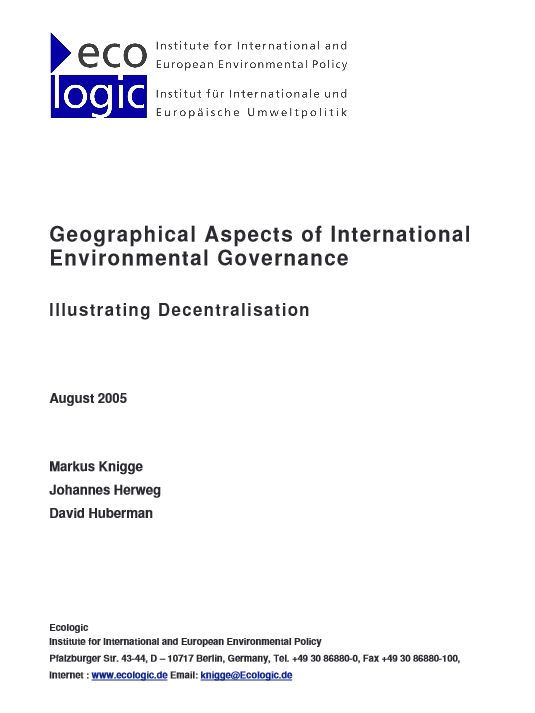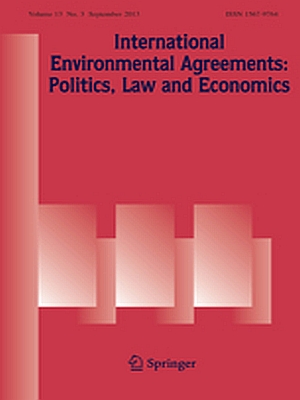Geographical Aspects of International Environmental Governance
Illustrating Decentralisation
- Publication
- Citation
Knigge, Markus; Johannes Herweg and David Huberman 2005: Geographical Aspects of International Environmental Governance. Illustrating Decentralisation. Berlin: Ecologic Institute.
The rise in the number of environmental institutions at the international level can be seen as a source of inconsistency within the implementation, enforcement, and rule-making processes of the environmental governance system. In this discussion paper, Ecologic Institute provides background information and several detailed maps to illustrate the spatial dispersion of the various institutions.
Over the past two decades, a large increase in the number of environmental institutions and Multilateral Environmental Agreements (MEAs) has raised a debate among academics, policymakers and members of civil society on the practical consequences of such a trend. In fact, it has been argued that the resulting lack of co-ordination represents one of the major challenges of international environmental governance.
The paper begins with an overview of the institutional context within which environmental matters are dealt with on the global scale. From there, the concept of institutional fragmentation is developed in an attempt to assess the consequences of the rapidly growing environmental regime. In this section, two concepts that are particularly relevant to a geographical analysis of fragmentation will be presented and discussed: clustering and co-location. Providing an additional perspective on the debate, the paper finally unveils several thematic maps showing in detail the current distribution of environmental institutions around the globe.





